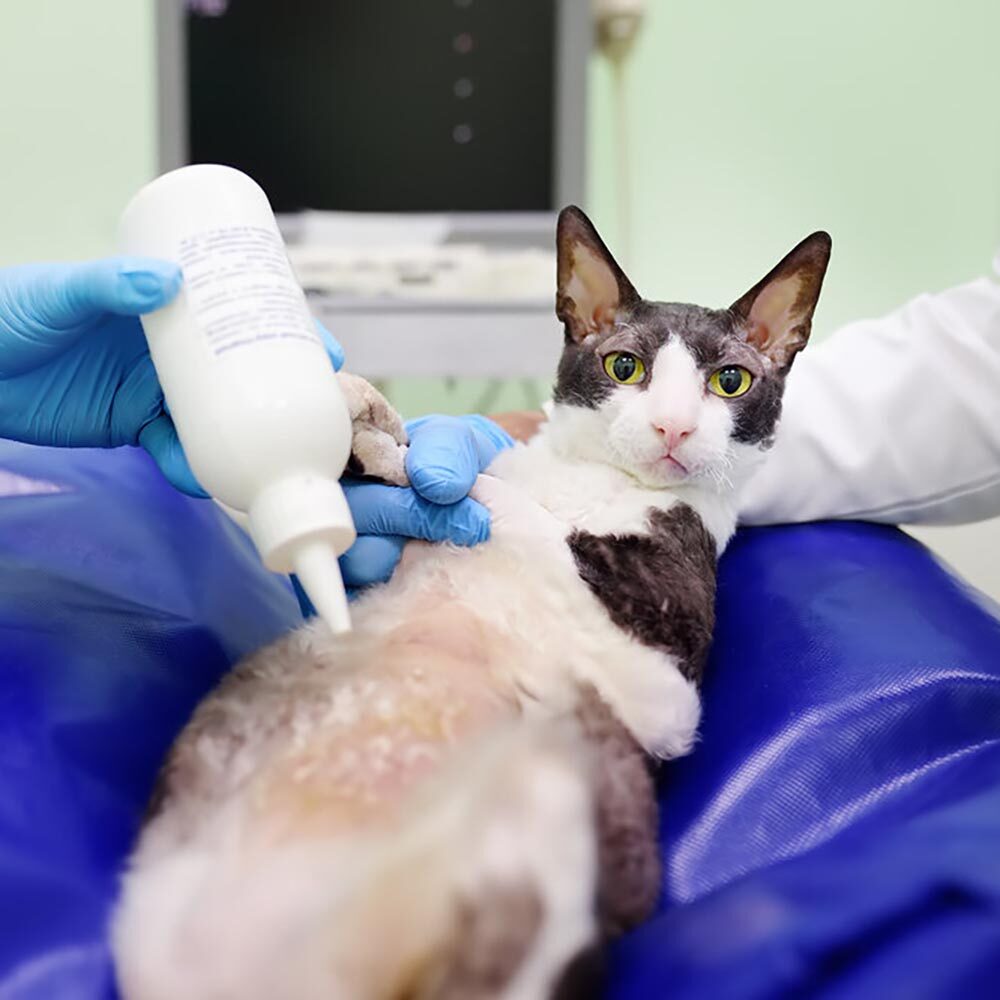What to Expect with Outpatient Cat & Dog Ultrasounds in Syracuse, NY
Veterinary Medical Center is dedicated to making every cat and dog ultrasound procedure a comfortable, low-stress experience. If your pet is due to have an ultrasound here in Syracuse, NY, please take a moment to review our detailed answers to some frequently asked questions about the procedure, and how to prepare.
Commonly Asked Questions About Pet Ultrasound
Your pet should not eat after 6pm the night before the ultrasound, but they may have access to water. Obtaining diagnostic images of the organs is difficult when the patient has food in the stomach/gastrointestinal system. If your pet has been diagnosed with diabetes or another condition that requires medication/regular meals, please discuss this with us when you schedule the appointment.
To obtain the best ultrasound images possible, good contact between the ultrasound probe and the patient’s skin is required. The patient will need to have the fur/hair shaved from the area being scanned.
No, you will need to wait outside the room. Your pet will be handled by a trained veterinary technician/assistant during the ultrasound. Due to the size of the room and the technical aspects of performing an ultrasound exam, we do not permit owners to accompany their pets to the treatment area. Our board-certified veterinary radiologist will perform the ultrasound exam and will produce a written imaging interpretation (radiology report).
The ultrasound exam is performed on a padded table while the patient lies quietly on their back in a dimly lit room. Trained staff stay with your pet throughout the procedure to aid in positioning and to help reassure your pet. A warm water-based gel is applied to the area being examined and the ultrasound transducer (probe) is gently moved along the patient's skin. Most pets will relax and rest peacefully for the procedure. In some cases, sedation may also be administered if the patient is difficult to restrain or in pain.
The vast majority of pets do not require sedation for an ultrasound. If sedation is required to perform a diagnostic quality evaluation, you will be contacted prior to any sedative being administered to get your consent. As with any sedation, some minor adverse reaction risks need to be considered, and those will be discussed with you. If you think your pet may require sedation due to personality traits or pain, please discuss that with us and with your primary care veterinarian. During periods of very high caseload, we cannot guarantee that the ultrasound will be performed at that appointment time or during that day if sedation is required and may need to be rescheduled.
All information regarding your pet’s ultrasound will be included in a detailed radiology report sent to your primary care veterinarian's practice within 24 hours. Your primary care veterinarian will communicate the results of the ultrasound to you. Any questions regarding your pet’s treatment options/next steps should be directed to your primary care veterinarian. They will be directing your pet's medical care moving forward unless they recommend a referral to one of our other specialists. If a condition requiring immediate intervention is identified, you will be alerted by phone while your pet is in our facility.
We understand that patients sometimes decline between the time of their appointment with their primary care veterinarian and the ultrasound exam. If your pet arrives in an unstable condition, one of our emergency doctors will fully evaluate them. Our emergency veterinarian will then contact you with medical recommendations based on that physical examination. Our routine emergency charges for the exam and any medical treatments will apply. Our staff will contact your primary care veterinarian as soon as possible to give them an update on your pet’s condition.

